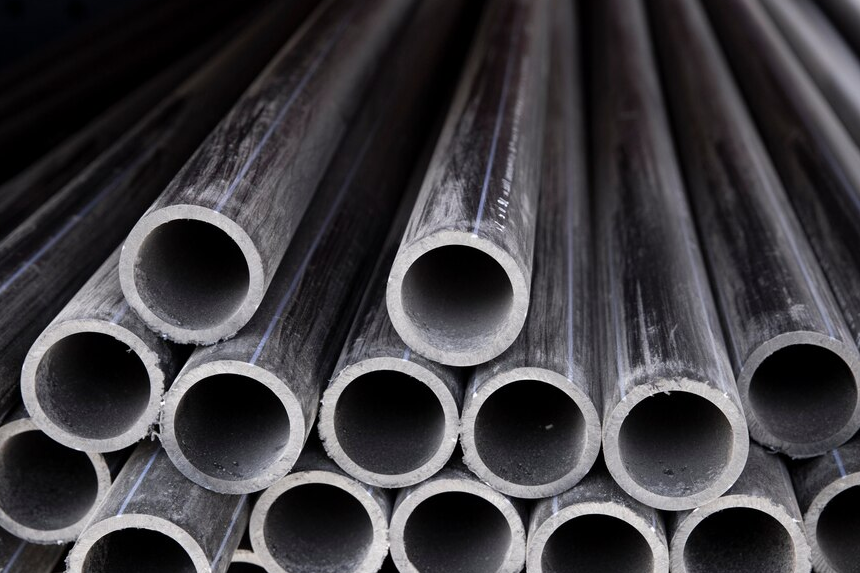The United States’ decision to impose a 25% tariff on all steel and aluminum imports has left many of its major trade partners scrambling to negotiate exemptions or strategize alternative responses. With the US steel tariffs set to take effect on March 12, countries around the world are weighing their options in response to the protectionist measure.
Will Australia Get an Exemption?
Despite the initial declaration that there would be “no exceptions or exemptions,” it appears that Australia may be an exception to this rule. Australian Prime Minister Anthony Albanese confirmed he had spoken with US President Donald Trump, who is considering an exemption for Australia.
Trump praised Albanese, calling him “a very fine man,” and justified a potential exemption by highlighting the US trade surplus with Australia. “The reason is they buy a lot of airplanes. They’re rather far away and they need lots of airplanes,” Trump explained.
However, while Australia is the world’s largest exporter of iron ore, its steel exports to the US are relatively minimal. According to Albanese, Australian steel accounts for just 1% of total US imports. Notably, Australian steel is used by a key US military shipbuilder, which may strengthen its case for an exemption.
How Has the UK Reacted?
The British government has yet to issue an official response to the tariffs, but the trade body UK Steel has expressed grave concerns. Gareth Stace, director general of UK Steel, described the US steel tariffs as a “devastating blow” to the industry.
“The US is our second-largest export market after the EU. At a time of shrinking demand and high costs, rising protectionism globally, particularly in the US, will stifle our exports and damage over £400m ($494m) worth of the steel sector’s contribution to the UK’s balance of trade,” he stated.
Stace also warned that the move could lead other steel-exporting nations to redirect their steel to the UK market, potentially harming domestic producers.
How Is the European Union Responding?
European Commission President Ursula von der Leyen has vowed a firm response, warning that “unjustified tariffs on the EU will not go unanswered.”
“They will trigger firm and proportionate countermeasures. The EU will act to safeguard its economic interests,” she stated. “I deeply regret the US decision to impose tariffs on European steel and aluminum exports. Tariffs are taxes – bad for business, worse for consumers.”
According to trade group Eurometal, the US is the second-largest market for EU iron and steel exports. Trump had imposed similar tariffs on the EU and the UK during his first term, but these were later relaxed under the Biden administration.
Does India Expect Any Major Impact?
India’s Steel Secretary, Sandeep Poundrik, downplayed the impact of the US steel tariffs, noting that India’s steel exports to the US are minimal.
“How much steel do we actually export to the US?” Poundrik remarked at an industry event. “We produced 145 million tonnes of steel last year, of which 95,000 tonnes was exported to the US. So, how does it matter if out of 145 million tonnes, you are not able to export 95,000 tonnes?”
However, not everyone in India shares this view. Naveen Jindal, chief of the Indian Steel Association (ISA), voiced concerns that the tariffs could lead to steel dumping in the Indian market.
“These US steel tariffs are expected to slash steel exports to the US by 85%, creating a massive surplus that will likely flood India, which is one of the few major markets without trade restrictions,” Jindal warned.
Will South Korea Seek a Deal?
South Korea is a major steel exporter to the US, with its products used by major brands such as Hyundai, Kia, Samsung, and LG, all of which have manufacturing facilities in the US and Mexico.
Trade Minister Cheong In-kyo stated that South Korea would “actively consider” negotiating with the US in response to the tariffs. The announcement came just a day after the South Korean industry ministry held an emergency meeting with steelmakers.
In 2018, when Trump imposed similar US steel tariffs, South Korea secured a waiver in exchange for agreeing to a yearly import quota. It remains to be seen whether Seoul will pursue a similar arrangement this time.
What Are the Long-Term Implications?
Trade policy expert Eswar Prasad suggests that in the long run, US trade partners may look to diversify their markets to reduce reliance on the US.
“Trump’s drastic actions have put the rest of the world on the back foot,” Prasad explained, citing the US economy’s strength relative to its trading partners.
Wendy Cutler, vice president of the Asia Society Policy Institute, warned that the rapid imposition of US steel tariffs could deter future negotiations.
“While overtures may be made to work with the Trump team to avert the tariffs, our partners may conclude that tariffs are coming so fast and furious, negotiations are not a durable option,” she said.
As the March 12 deadline approaches, trade partners will have to decide whether to push for negotiations, retaliate, or look for alternative markets. The global steel and aluminum industries are now bracing for significant shifts in trade flows as a result of these US steel tariffs.








